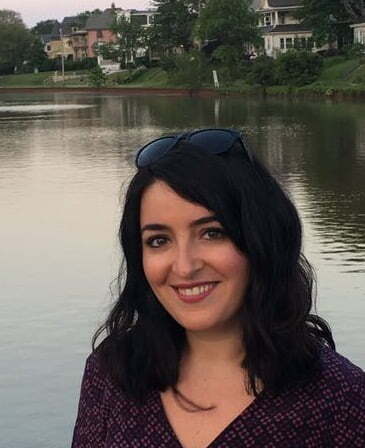Member Insight – Martine El Bejjani
 What sparked your decision to become an epidemiologist?
What sparked your decision to become an epidemiologist?
It was when I was finishing up my master’s thesis in psychiatric genetics, I was analyzing the data I had collected on the relationship between genes implicated in the stress response and anxious behavior in vervet monkeys, and I recognized the need and importance of study design and analytical methods that can allow to go further in comprehensively assessing variability in generic factors and behavioral outcomes and the interplay between genetic and environmental factors in influencing behavior.
What do you see as the biggest obstacle facing epidemiologists in the next five years?
In my opinion the biggest challenge is that we are, now more than ever facing, the “big questions” and the “big picture”. It is crucial that we find ways to go deeper in the big questions (for example, how do social factors actually affect health (not just a relationship but getting at delineating the complex social and biological mechanisms in different populations and contexts), how does stress affect every health outcome? How to integrate preventive measures?), and how can we translate such knowledge into policy and change.
Do you have any pets?
I love animals, but I currently don’t have a pet.
Why did you join SER? What keeps you coming back?
I joined SER following the recommendation of my phd advisors and professors and it just took attending one SER meeting (the Montreal meeting in 2011) for me to find a network of amazing colleagues and friends and a unique platform of resources (talks, workshops, and scientific and personal inspiration) that have been instrumental for both my professional and personal development.
What advice do you give students who want to become epidemiologists?
My main advice would be to invest in getting to know and being exposed to different facets and professions/disciplines in your area of interest in epidemiology (from the data collection procedures to the translation of knowledge; to talking and working with professionals and researchers specialized in these stages and in other disciplines involved in your area of interest), basically to try as much as possible to immerse in the uniqueness of epidemiology, which allows for both depth and breadth.
Outside of epidemiology what do you enjoy doing?
Lots of things! I love walking, discovering new music, reading, looking at paintings, looking at the sea, and watching movies. I love lingering and long conversations with friends.
What is something that not many people know about you?
I love the late night time and dawn. I often set my alarm clock to be able to catch that moment. I love watching the sun rise and how different places and days get ready for the day.
